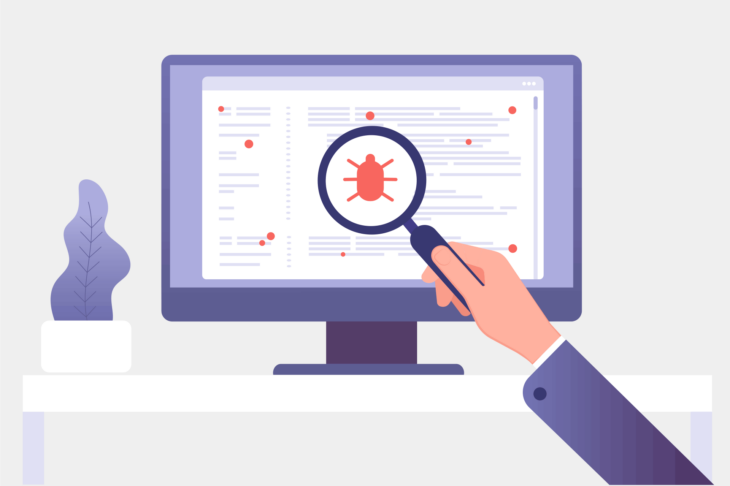
4 Reasons Your Organization Needs Vulnerability Testing Yesterday
Cybersecurity should be a priority for every business owner.
According to statistics sourced by SmallBizTrends, ransomware attacks cause 75% of small-to-medium-sized businesses to stop operating, and many end up permanently out of business.
These and other types of cyberattacks cause businesses to lose important data, which results in significant financial loss.
Although many businesses have yet to implement a strong cybersecurity plan, it’s the only way to protect against known and unknown threats. Simply having a firewall or VPN isn’t enough. If you aren’t continually looking for vulnerabilities, your business isn’t secure.
Here are several reasons to implement vulnerability testing in your organization as soon as possible.

1. Your network isn’t as secure as you think
How secure is your network? If you haven’t gotten an IT vulnerability assessment, from a company like Reverus, you can’t say for certain that your network is secure. Vulnerabilities aren’t always easy to spot. Sure, if you hear about a known issue with software you use, you can download the patch to secure your installation.
However, that’s not how most vulnerabilities are discovered. Most of the time, it’s human error and oversight, which can go undetected for sometimes years – unless you perform an assessment to identify these issues.
A cybersecurity assessment will make you aware of potential threats, risks, and data breaches that can happen at any time without your knowledge.
You’ll also get the following benefits:
- The ability to stop unauthorized activity before it becomes a problem
- Gain insight into how to prepare for future upgrades
- Establish cybersecurity records that make future audits easier
- Glean insight into the vulnerabilities that exist for devices connected to your network
All of these benefits are the first step in securing your network. First, you need to know what your vulnerabilities are before you can implement a solution. A cybersecurity audit is the best place to start.
However, regular vulnerability testing is a must. Cybersecurity threats change over time and threat actors are always coming up with new ways to breach networks. The only way to thwart new attacks is to perform vulnerability tests continually. You can do this with automated software, but it’s advised to have the process implemented and overseen by an IT security expert.
2. It’s cheaper than penetration testing
Ideally, your organization should be utilizing both vulnerability and penetration testing. However, when budgets are small, it’s understandable that you’d have to choose one over the other. If you’re faced with a budget dilemma and can’t afford the cost of penetration testing, you should at least opt for vulnerability testing.
The difference is that penetration testing takes an active approach to launch targeted, simulated attacks against your organization’s IT infrastructure to identify vulnerabilities that go layers deep.
For instance, the tester might successfully gain access to your network and then look for ways to exploit their access further. The insight you’ll gain from penetration testing will help you secure your business to a higher level than just using vulnerability testing. So, if you can work it into your budget somehow, it’s worth every penny.

3. Regulatory fines are massive
The main purpose of vulnerability testing is to help you avoid attacks that can end up costing you thousands of dollars and potentially ruining your business. There are a growing number of data protection laws that will dish out fines to anyone found out of compliance. The biggest one is the EU’s General Data Protection Regulations (GDPR), which apply worldwide to all EU citizens.
Some of the largest GDPR fines were levied against Meta: €1.2 billion for unlawfully transferring personal data to the U.S., €405 million for allowing children to create business accounts on Instagram where their contact information was public, and €265 million when an unauthorized party scraped Facebook and published the personal information of 533 million users.
There have been thousands of smaller fines levied against SMBs, and many of those businesses had to close for good because the fines wiped them out. There is only one way to prevent being fined and that is to comply with all required data regulations to the letter and take all precautions to protect your data.
However, the regulations don’t always say how to protect your data. It’s up to you to figure that part out. Most of the time, protection requires encrypting your data end-to-end. This ensures that even if your data is stolen, it can’t be read, which means you won’t get fined. Do you know if your data is secure? Regular vulnerability testing can help you find out so you can fix existing issues.
4. You have client/customer data to protect
Hefty regulatory fines aren’t the only reason you need to do everything possible to secure your data. If you store customer or client data, securing that information is essential since it’s required by law.
In addition to facing fines for a data breach, you might also get sued by the people whose data was compromised. This will only increase the amount of money you have to pay out. Even if your insurance policy covers the payout, you’ll still have to go to court and spend time and money to negotiate a settlement. Your insurance premiums will probably rise, and if you were hit by ransomware, there’s a chance you may not be covered by insurance at all. Many policies only cover instances where a business has put specific measures in place to protect against ransomware attacks. Some policies don’t cover ransomware at all.
Many well-known insurance providers are cutting their coverage for ransomware attacks after they had to pay out massive amounts of compensation during the Covid-19 pandemic. Most of the time, ransomware attacks are caused by human error, and it’s only fair that businesses are being required to up their game to get covered.

Start getting vulnerability tests right away
If you haven’t implemented regular vulnerability testing into your business, now is the time to start. The sooner you get this service in place, the sooner you’ll have peace of mind regarding your network’s security.